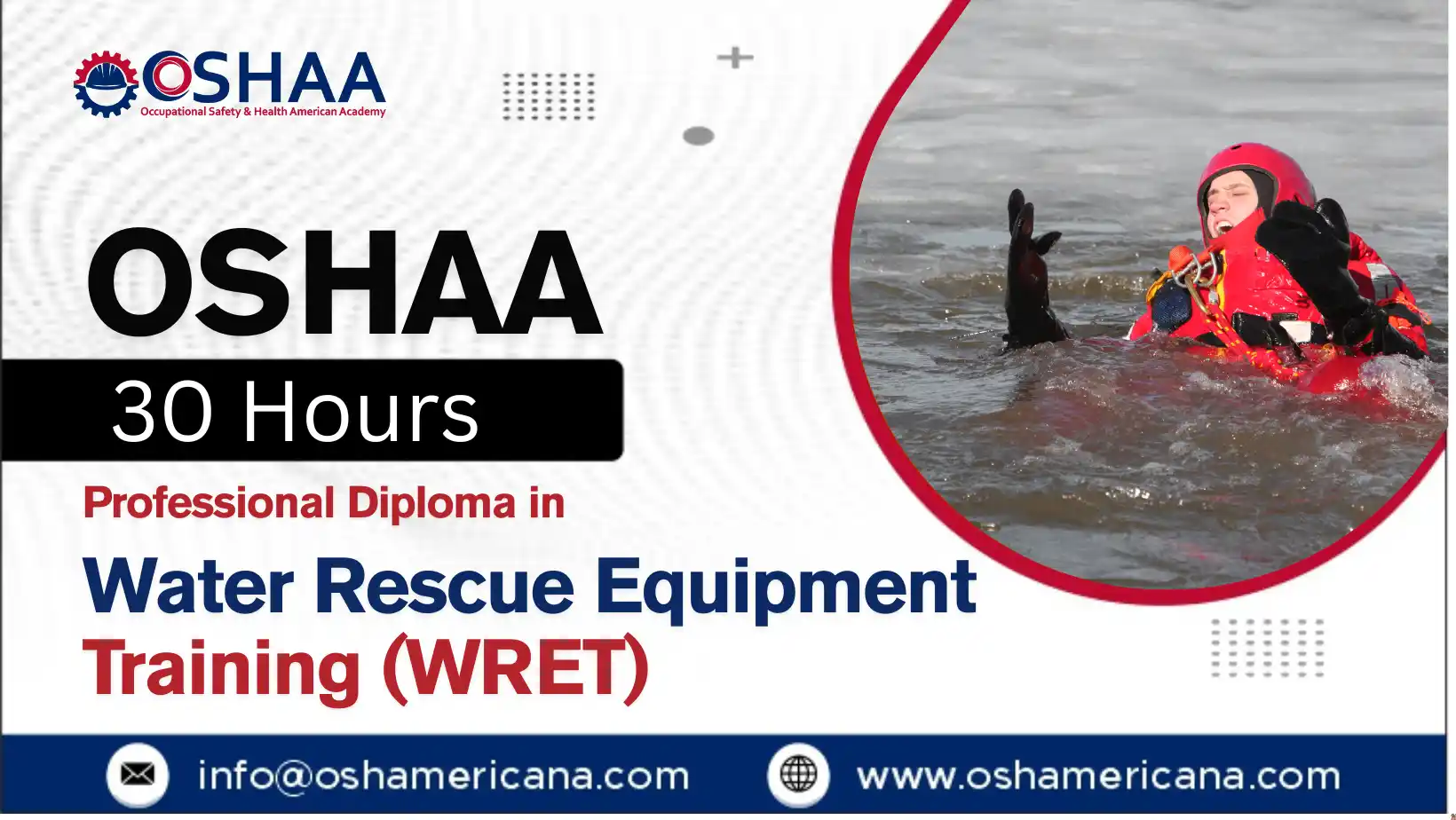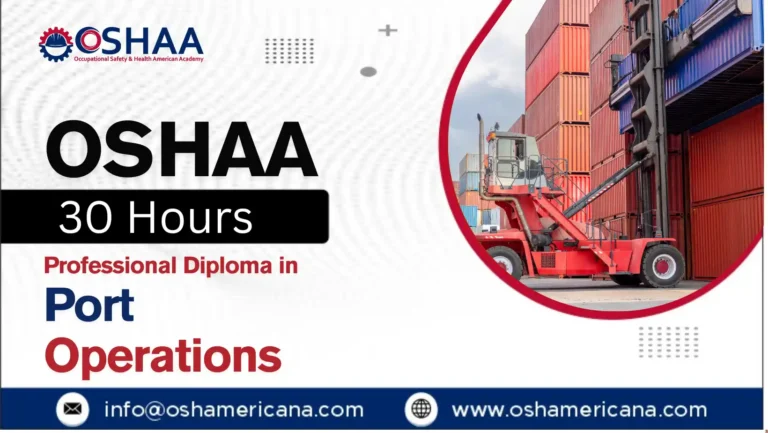WRET Professional Diploma – OSHAA 30-Hours Training
The OSHAA 30-Hours Professional Diploma in Water Rescue Equipment Training (WRET) is a specialised programme designed to equip participants with the knowledge and practical skills required to effectively use, maintain, and manage water rescue equipment. Delivered to high professional standards set by OSHAA, this course prepares learners to confidently operate critical rescue tools essential for saving lives in aquatic environments.
Throughout the programme, participants gain a comprehensive understanding of a wide range of water rescue equipment, including rescue boards, throw bags, flotation devices, ropes, and specialised retrieval tools. The training focuses on correct handling techniques, operational procedures, and routine maintenance practices to ensure equipment remains reliable during emergency situations.
A strong emphasis is placed on hands-on training, allowing participants to practise using rescue equipment in controlled and realistic scenarios. This practical experience builds confidence and ensures quick, safe, and effective responses during real water rescue operations, reducing risks to both rescuers and casualties.
The course also covers equipment inspection methods, storage procedures, and compliance with relevant safety standards and regulations. This ensures participants can maintain rescue equipment in optimal condition and uphold readiness at all times.
Ideal for lifeguards, rescue teams, emergency responders, aquatic facility staff, and safety officers, the OSHAA 30-Hours WRET Diploma supports professional development and operational excellence. Completing this qualification demonstrates a commitment to high water safety standards and contributes to creating safer aquatic environments for everyone.
OSHAA 30-Hours Professional Diploma in Water Rescue Equipment Training (WRET)
Study Units
Learning Outcomes
Introduction to Water Rescue Equipment and Roles (3 Hours)
- Understand the purpose and importance of water rescue equipment
- Identify key roles and responsibilities in managing rescue equipment
- Recognise how effective equipment use supports successful rescue operations
Types and Functions of Water Rescue Equipment (4 Hours)
- Identify different types of water rescue equipment and their specific functions
- Understand the appropriate use of each equipment type in various rescue scenarios
- Develop knowledge of equipment capabilities and limitations
Safe Handling and Operation Techniques (4 Hours)
- Demonstrate correct and safe handling techniques for water rescue equipment
- Apply operational protocols to minimise risk during rescue missions
- Ensure personal and team safety while using equipment in aquatic environments
Inspection and Maintenance of Rescue Equipment (3 Hours)
- Perform thorough inspections to identify wear, damage, or defects
- Apply routine maintenance practices to prolong equipment lifespan
- Document inspection and maintenance activities according to standards
Storage and Equipment Management Best Practices (3 Hours)
- Implement proper storage methods to protect equipment integrity
- Manage equipment inventory efficiently for readiness and accessibility
- Understand environmental factors affecting equipment storage and care
Rescue Board Operation and Deployment (5 Hours)
- Operate rescue boards effectively in simulated rescue scenarios
- Demonstrate deployment techniques that maximise rescue success and safety
- Coordinate with team members during rescue board usage
Use of Throw Bags and Flotation Devices (3 Hours)
- Utilize throw bags accurately to assist in water rescues
- Deploy flotation devices appropriately to support casualties
- Maintain and inspect throw bags and flotation equipment regularly
Communication and Coordination during Rescue Operations (3 Hours)
- Apply clear communication strategies during rescue incidents
- Coordinate roles and actions among rescue team members effectively
- Use communication tools to enhance operational efficiency and safety
Compliance with Safety Standards and Regulations (2 Hours)
- Understand relevant safety standards and regulatory requirements
- Ensure equipment usage and management align with legal obligations
- Promote adherence to policies that safeguard rescuers and casualties
- Provides participants with comprehensive knowledge of essential water rescue equipment
- Enhances practical skills for safe handling, operation, and deployment of rescue tools
- Equips participants to perform routine inspection and maintenance, ensuring equipment reliability
- Develops effective management and storage techniques to prolong equipment lifespan
- Builds confidence in using key rescue equipment such as rescue boards, throw bags, and flotation devices
- Strengthens communication and teamwork skills vital for successful rescue operations
- Ensures understanding of compliance with safety standards and regulatory requirements
- Prepares participants to respond swiftly and effectively in real-world water rescue scenarios
- Promotes operational excellence and safety culture within rescue teams
- Offers a recognised professional qualification that advances career prospects in aquatic safety and rescue
- Participants working as water rescue personnel or lifeguards seeking to enhance equipment skills
- Aquatic safety officers and pool supervisors responsible for rescue readiness
- Emergency responders and rescue team members operating in aquatic environments
- Facility managers overseeing water safety and rescue operations
- Trainers and instructors delivering water rescue and safety programmes
- Individuals aiming to build or advance careers in water safety, rescue, and emergency management
- Professionals committed to maintaining high standards of equipment safety and operational effectiveness







